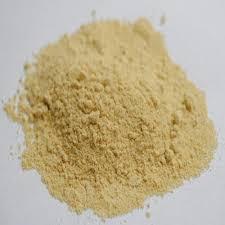Yeast Nucleotides Market expected to grow in sports and medical nutrition segments

The yeast nucleotides market is expanding into sports and medical nutrition due to its restorative and immune-supporting benefits.While traditionally associated with animal feed and veterinary applications, yeast-derived nucleotides are now increasingly seen as valuable functional ingredients for human health — particularly in the areas of physical performance, post-illness recovery, and immunity. This trend is creating new revenue channels and pushing manufacturers to adapt formulations, certifications, and marketing strategies to meet the needs of athletes, patients, and health-conscious consumers.
Rising Application in Sports Nutrition
In the competitive world of sports nutrition, the emphasis has steadily shifted from just macronutrients to more functional components that aid in faster recovery, energy metabolism, and immune resilience. Yeast nucleotides fit well into this narrative. They are known to support RNA and DNA synthesis, enhance cellular repair, and bolster immune responses — all of which are crucial for athletes exposed to physical stress.
Formulators are now integrating nucleotides into protein powders, energy bars, and hydration formulas aimed at endurance athletes and strength trainers. Clinical evidence suggests that nucleotides can modulate cortisol responses, aid muscle recovery, and support gut health — an area increasingly recognized as central to performance optimization. This has positioned nucleotides as a promising "next-gen" ingredient in advanced sports supplements.
Moreover, the growing consumer demand for natural and safe performance-enhancing supplements makes yeast-derived nucleotides appealing, as they can be marketed as non-synthetic and derived from fermentation processes. These attributes resonate well with clean-label consumers who actively seek recognizable, biologically active ingredients with scientific backing.
Breakthroughs in Medical Nutrition
Medical nutrition is another segment where yeast nucleotides are finding increasing relevance. Nutritional interventions for immune-compromised patients, postoperative recovery, chronic illness, and elderly care are incorporating nucleotides for their regenerative and immunomodulatory effects. These compounds aid tissue regeneration, support gastrointestinal function, and help maintain immune competence — especially under stress or inflammation.
In infant formulas and hospital nutrition, nucleotides have already been incorporated to mimic the profile of breast milk or to support rapid recovery. Now, similar formulations are being extended to adult enteral nutrition and therapeutic dietary regimes. With the prevalence of metabolic disorders and lifestyle diseases rising, the demand for scientifically validated medical nutrition products continues to grow — a factor that strongly favors nucleotide supplementation.
Further, with an aging global population, medical nutrition is becoming an essential component of elder care. Yeast nucleotides, known to improve gut mucosa integrity and nutrient absorption, are being researched for their role in maintaining health and vitality in aging individuals. This demographic shift opens up long-term opportunities for nucleotide-based medical nutrition.
Scientific Backing and Regulatory Advances
The acceptance of yeast nucleotides in sports and medical nutrition is being driven by a growing body of scientific literature. Studies point to their roles in reducing pro-inflammatory cytokines, enhancing gut-associated lymphoid tissue (GALT) activity, and improving nutrient assimilation in compromised conditions. These benefits are particularly valuable in clinical and high-performance contexts.
Regulatory bodies in Europe, North America, and Asia-Pacific have started to create pathways for approval of nucleotides in human nutrition. With GRAS (Generally Recognized As Safe) status granted for certain yeast-derived nucleotides, companies are now able to label and market these ingredients in fortified food, beverages, and supplements. This legal clarity is encouraging more companies to enter the space and develop targeted formulations.
Market Dynamics and Consumer Education
As the yeast nucleotides market transitions into human health applications, companies are now facing the dual challenge of meeting clinical standards while also educating consumers about the benefits. The term “nucleotides” remains unfamiliar to many, particularly outside of medical or athletic circles. Therefore, clear on-pack messaging, supported by human clinical data, is crucial to drive adoption.
Brands in sports and medical nutrition are employing educational campaigns, digital storytelling, and practitioner endorsements to build trust and communicate benefits such as improved immunity, gut integrity, and faster recovery. Additionally, partnerships with sports institutions and hospitals can help position these products within professional environments where efficacy is a core concern.
Innovation in Delivery Formats
To cater to new end-use markets, innovation in product delivery is becoming a priority. Beyond capsules and powders, companies are introducing nucleotides in functional beverages, gels, dissolvable strips, and even personalized sachets for hospital use. The idea is to improve compliance and convenience — key factors in both sports and medical contexts.
Some companies are also exploring synergy by combining yeast nucleotides with complementary ingredients such as glutamine, probiotics, or zinc to create complete recovery and immune-support blends. These innovations not only improve product appeal but also offer a broader base of benefits in a single formulation.
Outlook: Strong Potential With Scientific Positioning
The potential of yeast nucleotides in sports and medical nutrition is immense, but success hinges on scientific positioning and clinical validation. As more human studies emerge and regulatory pathways become clearer, these ingredients could become staple additions in a wide range of health and wellness products.
While the livestock and veterinary sectors remain strong pillars of the yeast nucleotides market, the shift toward functional human nutrition promises to expand the market considerably. With rising demand for immune-boosting, performance-enhancing, and gut-supportive products, yeast nucleotides are poised to be a critical link between nutrition and recovery in the years ahead.
- Art
- Causes
- Crafts
- Dance
- Drinks
- Film
- Fitness
- Food
- Games
- Gardening
- Health
- Home
- Literature
- Music
- Networking
- Other
- Party
- Religion
- Shopping
- Sports
- Theater
- Wellness


